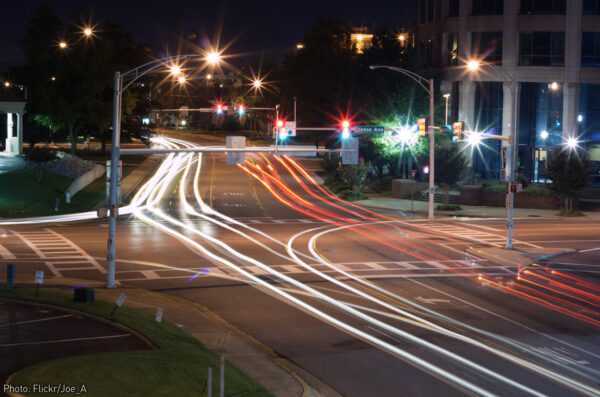ACLU at Supreme Court Wednesday to Argue in Cellphone Tracking Case
Ruling Could Have Broad Implications for Personal Data Stored by Tech Firms
WASHINGTON — The Supreme Court will hear a landmark case Wednesday on whether the government needs a warrant to access a person’s cellphone location history.
In the case, Carpenter v. United States, the American Civil Liberties Union represents a man who had months of his cellphone location information turned over to law enforcement without a warrant.
“Because we always have our cellphones with us, their location history reveals a lot about our personal lives. This is exactly the kind of private information the Fourth Amendment was designed to protect,” said ACLU attorney Nathan Freed Wessler, who will appear before the court Wednesday. “The government’s argument, based on rulings from the analog era, would free it to get comprehensive records of what websites we view, what Google searches we enter, and even our voice commands to smart devices — without constitutional limit. It’s 2017, not 1977, but people have the right to expect that their everyday movements and thoughts will not be freely available to the government without a warrant.”
In 2011, without getting a probable cause warrant, the government obtained from cell service companies months’ worth of phone location records for suspects in a robbery investigation in Detroit. For one suspect, Timothy Carpenter, the records covered 127 days and revealed 12,898 separate points of location data. Police seek these kinds of cellphone location records from phone companies tens of thousands of times each year.
After Carpenter was convicted at trial, based in part on the cellphone location evidence, he appealed to the Sixth Circuit Court of Appeals, which ruled 2–1 that no warrant is required under the Fourth Amendment.
Among the many friend-of-the-court briefs filed in the case is the one from technology companies, which was signed by Google, Facebook, Apple, Verizon, Twitter, Cisco, Microsoft, and others. They echoed the ACLU’s arguments, writing that “Fourth Amendment doctrine must adapt to the changing realities of the digital era” and that “Rigid analog-era rules should yield to consideration of reasonable expectations of privacy in the digital age.”
In another friend-of-the-court brief, the Reporters Committee for Freedom of the Press and 19 other media organizations warned of the chilling effect on First Amendment freedoms that can result from easy law enforcement access to the location information of reporters and their sources.
The government’s argument is based on the “third-party doctrine,” which the government reads to provide that by sharing information or records with a “third party” such as a business, a person gives up any reasonable expectation that the information will remain private. The doctrine was established in Supreme Court cases from the 1970s, which reasoned that without an expectation of privacy, there is no Fourth Amendment protection for certain records voluntarily shared with businesses, such as canceled checks sent to a bank or phone numbers dialed on a phone and transmitted over a phone company's equipment. The government has extended that principle to cover various kinds of digital records, such as cell phone location data.
“Given the increasing use of new forms of electronic surveillance, it’s important now more than ever that the Supreme Court steps in to clarify the protections of the Fourth Amendment for everyone. The mere fact that we carry cellphones should not mean that our every location is trackable by the government at will,” said attorney Harold Gurewitz, who represents Carpenter alongside the ACLU.
The data acquired by police in the case provides a stark demonstration of how location data can reveal extraordinarily private details about people’s lives, from where they sleep to where they pray.
For example, the location data showed that in the early afternoon on a number of Sundays, Carpenter made or received calls from the cell tower sectors nearest to his church. His cellphone records do not routinely show him in that area on other days of the week, implying that he was worshipping at those times.
Carpenter’s call records reveal that over the course of four months, his phone was located in more than 200 separate cell tower sectors. On one day, he made and received 141 calls while located in 40 different sectors. These records provide a very detailed accounting of everywhere he went.
From December 23 to December 27, 2010, Carpenter’s last call of the night and first call of the next morning were either or both placed from the sector nearest to his home, suggesting that he slept at home on those evenings. But on the night of December 22, his last call of the night and first call of the next morning were placed from a Detroit neighborhood several miles away, indicating that he did not spend the night at his home.
Carpenter is represented at the Supreme Court by the ACLU, the ACLU of Michigan, defense attorney Gurewitz of Gurewitz & Raben PLC, and Jeffrey Fisher, co-director of the Stanford Law School Supreme Court Litigation Clinic.
More on the facts and issues in the case is here: https://www.aclu.org/blog/privacy-technology/location-tracking/right-keep-personal-data-private-carpenter-v-us
All briefs filed in the case are here: https://www.aclu.org/cases/united-states-v-carpenter




